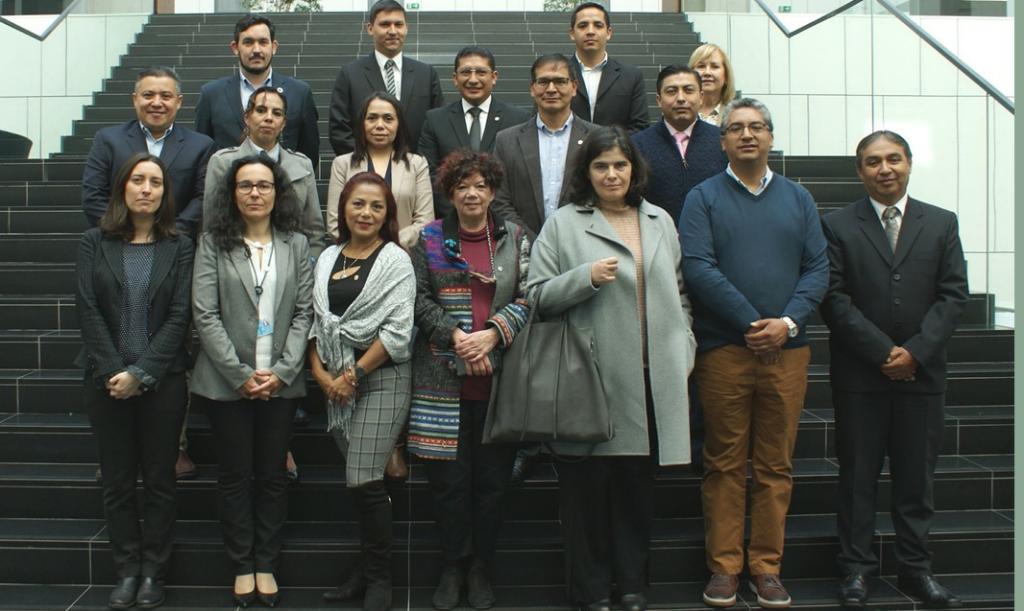The EL PAcCTO programme, which reinforces the path to the development of inter-institutional coordination, accompanied members of the Prosecution Services, the National Police and the Financial and Economic Analysis Units of Bolivia, Ecuador, El Salvador, Paraguay and Peru on several joint exchange visits between linked stakeholders and/or Specialised Multidisciplinary Teams from Spain, France and Portugal.
The objective was to present and learn about relevant, specific and operational European experiences of inter-institutional coordination work in various European Union countries, specifically in the creation and operation of Specialised Multidisciplinary Teams (EMEs).
EL PAcCTO and Specialised Multidisciplinary Teams.
EMEs are organised operational groups that provide a specific and practical response to complex research problems. Its members need a high degree of specialisation.
EL PAcCTO is committed to working modalities at the inter-institutional level and at the operational level for each country.
Main themes previously identified and selected by the countries
-
- Bolivia: combating human trafficking
- Ecuador: combating money laundering and related crimes
- El Salvador: combating corruption
- Peru: combating environmental crimes
- Paraguay: combating economic and financial crimes
Visit to several European countries
In Lisbon, the Latin American delegation was able to identify and learn from the experiences and lessons of European institutions such as the Procuradoria-Geral da República [Prosecutor General’s Office] in trafficking in human beings, the Departamento Central de Investigação e Ação Penal [Central Department of Criminal Investigation and Prosecution] in cybercrime and money laundering, and the Polícia Judiciária [Judicial Police] in matters relating to locating assets.
In Paris, representatives from Ecuador and Paraguay were able to see first-hand the work of TRACFIN, the French Financial Intelligence Unit, and the work of the Ministry of the Interior with its Sub-directorate for the Fight against Financial Crime (SDLCF).
They also got to see the work of the Judicial Police, the Central Office for the Suppression of Major Financial Crime (OCRGDF), as well as the Central Office for the Fight against Corruption and Financial and Fiscal Violations (OCLCIFF) and the Platform for Identification of Criminal Assets (PIAC).
In Madrid, the Bolivian and Peruvian delegation visited the facilities of the Public Prosecution Service where they discussed issues related to the fight against human trafficking and environmental crimes.

Advantages of Specialised Multidisciplinary Teams
- They facilitate coordinated work between the different stakeholders in the criminal chain. These teams physically bring together investigators, prosecutors and other specialised officials, allowing real teamwork to take place.
- They facilitate the circulation of information, as each team member will have access to the databases and be able to share information easily.
- Greater specialisation: team members will receive specific training, and by working on highly complex cases, they will gradually acquire even greater specialisation.
These visits have allowed the delegations to do the following:
- To see specifically how Specialised Multidisciplinary Teams work in Europe.
- To see the benefits of the articulated work between all institutions to combat manifestations of organised crime.
EL PAcCTO has supported the creation and implementation of several EMEs in various countries on various themes, depending on priorities.
In 2020, countries of the region that have expressed the need for and requested support in the creation of EMEs will continue to join.
